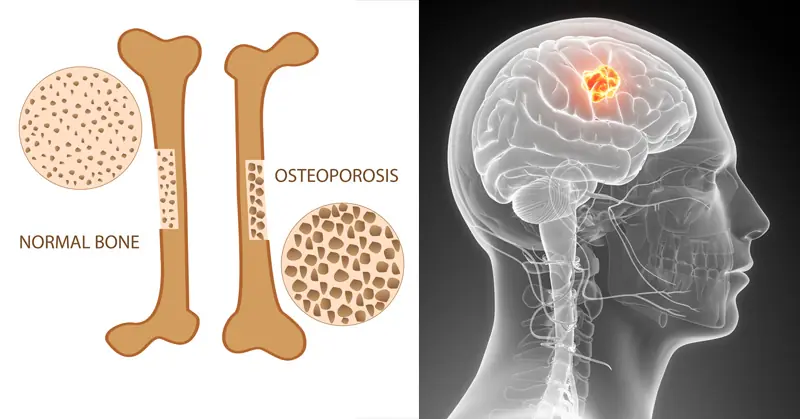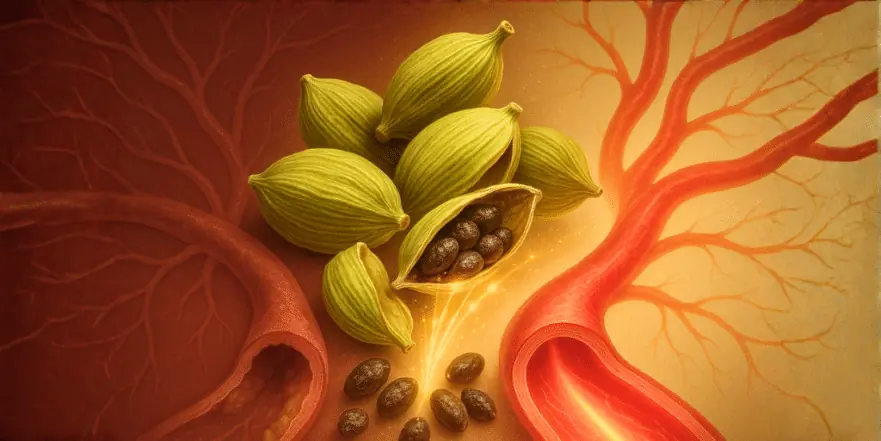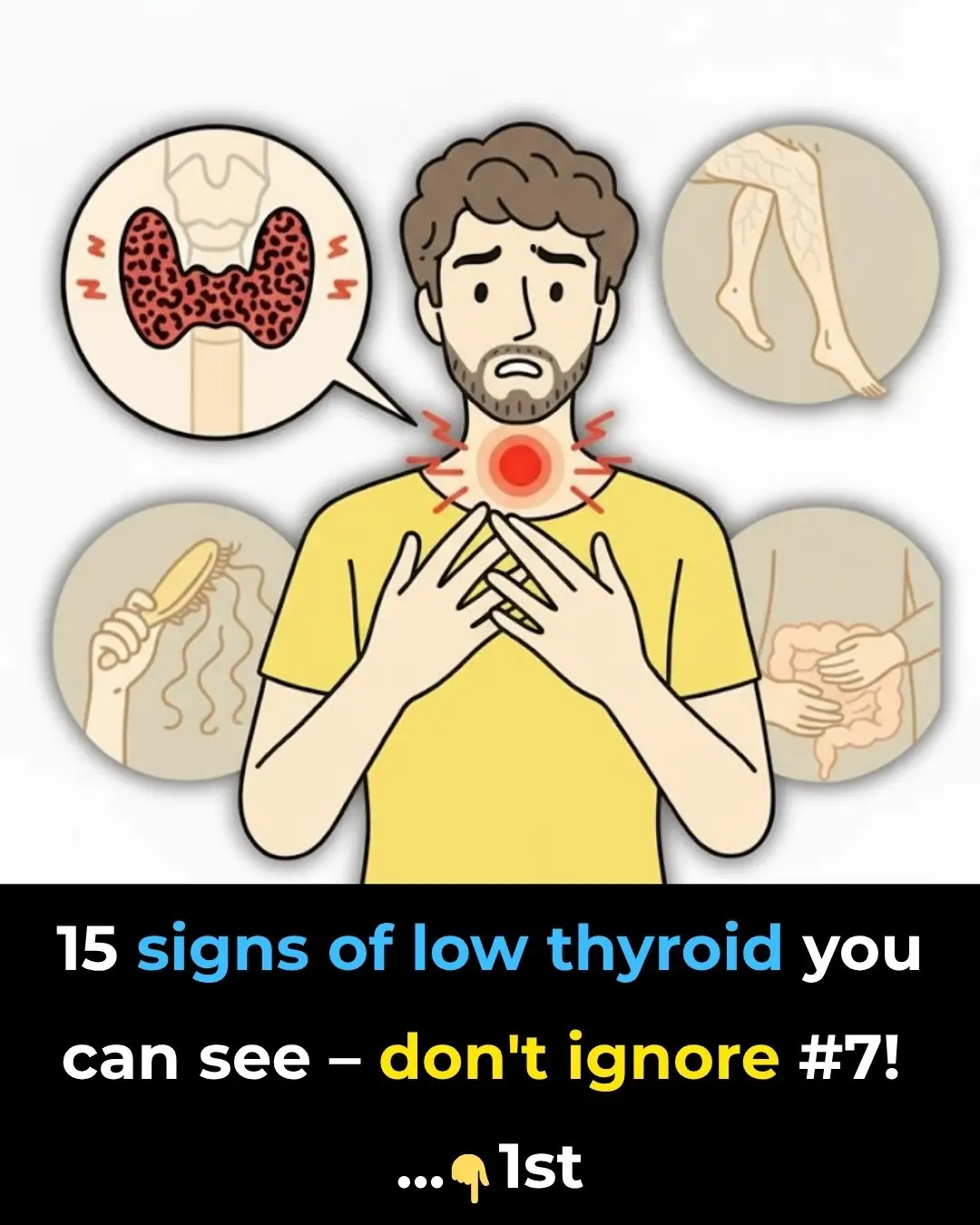
14 Warning Signs of Low Magnesium Levels and What to Do About It (Science Based)
Detecting low magnesium levels in your body can be quite challenging because the symptoms are often subtle and easily confused with other health issues. A magnesium deficiency can manifest through various signs such as muscle cramps, fatigue, nausea, tingling sensations in the hands or feet, and constipation. Many of these symptoms overlap with other medical conditions, making it difficult to immediately pinpoint magnesium deficiency as the cause. However, it is crucial not to overlook these signs, as persistent low magnesium can have serious health consequences.
This “invisible deficiency,” as it is sometimes called, can go unnoticed for years. Prolonged magnesium deficiency has been linked to several chronic health problems, including osteoporosis (weakening of the bones), cardiovascular diseases such as heart disease and high blood pressure, and even kidney stones. These complications arise because magnesium plays a vital role in numerous physiological functions, and a shortage can disrupt many systems in the body.
Why Is Magnesium Deficiency Hard to Detect?
If low magnesium is so serious, why does it often remain undiagnosed? One reason is that the side effects of magnesium deficiency are frequently mistaken for symptoms of other conditions. Furthermore, lifestyle factors can influence magnesium absorption and retention. Conditions like chronic diarrhea, excessive alcohol consumption, and certain medications can reduce magnesium levels, making it more common than many realize.
In this article, we will explore 14 warning signs of low magnesium levels that people commonly overlook. Additionally, we will answer key questions such as: what causes magnesium deficiency, how to treat it, and the best ways to naturally boost magnesium levels in your body.
The Role of Magnesium in Your Body
Magnesium is an essential mineral critical for maintaining the proper functioning of your body. According to Dr. Carol DerSarkissian on WebMD, magnesium supports healthy bones, muscles, nerves, and heart function. It also helps regulate blood pressure and blood sugar levels, contributing to your overall energy levels and well-being.
The National Institutes of Health (NIH) highlight that magnesium is involved in over 300 biochemical reactions in the body. It plays an important role in synthesizing DNA, and its antioxidant properties help protect your cells from damage. Approximately half of the magnesium in your body is stored in the bones, with the rest in soft tissues and a small amount circulating in the blood.
When magnesium levels in your blood drop below the normal range, the condition is called hypomagnesemia. This indicates a magnesium deficiency somewhere in your body, often signaling a need for intervention.
The Important Connection Between Magnesium, Vitamin D, and Calcium
Magnesium works closely with calcium and vitamin D, forming a triad that is essential for bone and overall health. A deficiency in magnesium can interfere with the way your body absorbs and uses vitamin D, which in turn affects calcium balance.
The NIH explains that magnesium influences vitamin D metabolism, which is vital for maintaining strong bones. Vitamin D regulates calcium and phosphate in your body—minerals necessary for healthy bones, teeth, and muscle function. Additionally, magnesium helps prevent excessive calcium buildup, which can cause calcification in tissues and increase the risk of heart disease.
Research published in the journal American Family Physician notes that adequate magnesium levels are necessary to maintain the balance of calcium and potassium. Without enough magnesium, calcium levels can rise to harmful levels because magnesium helps flush out excess calcium through the kidneys.
The BMJ Open journal reported that imbalances in magnesium and calcium levels contribute to increased inflammation and are linked to many chronic diseases such as arthritis, cardiovascular disease, and diabetes.
How to Test Your Magnesium Levels
The most common method to assess magnesium levels is through a blood test. However, since most magnesium resides inside cells and bones—not in the bloodstream—this test may not always reflect your true magnesium status. If your symptoms suggest a deficiency but your blood test appears normal, your healthcare provider might suggest other tests such as red blood cell magnesium levels or magnesium loading tests.
14 Symptoms of Low Magnesium You Shouldn’t Ignore
How can you tell if your magnesium levels are dangerously low? In Western countries, magnesium deficiency is quite prevalent. Dr. Mary Guerrera from the University of Connecticut School of Medicine estimates that about 75% of Americans show signs of low magnesium.
Here are the 14 most common signs of magnesium deficiency that often get overlooked:
1. Muscle Cramps and Spasms
Magnesium plays a key role in muscle function. A deficiency can cause cramps, spasms, twitches, or involuntary muscle contractions. Mayo Clinic doctors explain that muscle cramps are often caused by low levels of magnesium, calcium, or potassium. Staying hydrated and stretching regularly can help reduce muscle cramps.
2. Numbness and Tingling
Experiencing frequent numbness or tingling sensations in your limbs might indicate magnesium deficiency. The American Academy of Family Physicians reports that low magnesium is linked with these symptoms. However, similar sensations might also stem from nerve compression or poor circulation, so it’s important to consult a doctor.
3. Loss of Appetite
If you find yourself frequently uninterested in food, it could be an early sign of low magnesium. A study in Nutrients indicates that loss of appetite often precedes more severe deficiency symptoms and can worsen fatigue.
4. Fatigue and Weakness
Persistent tiredness and physical weakness are common in magnesium deficiency. The Clinical Kidney Journal notes fatigue as an early warning sign, and studies show many people with chronic fatigue syndrome also have low magnesium levels.
5. Nausea and Vomiting
While nausea can have many causes, persistent nausea and vomiting are often overlooked symptoms of magnesium deficiency. The University of Maryland reports this as a frequent sign. Natural remedies like ginger may help alleviate these symptoms.
6. Irregular Heartbeat (Arrhythmia)
Magnesium is crucial for maintaining a healthy heart rhythm. Low levels can cause arrhythmias, which can increase the risk of heart attack. Research in Hippokratia shows that correcting magnesium deficiency reduces arrhythmia risk.
7. Personality Changes
Magnesium deficiency may affect mood and personality. A Japanese study linked low magnesium with depression and mood swings, suggesting that some depressive symptoms might stem from this deficiency rather than psychiatric disorders.
8. Anxiety
Low magnesium can worsen feelings of anxiety and stress by affecting neurotransmitters like glutamate and regulating adrenal gland function, which manages stress hormones.
9. Sleep Problems
Insufficient magnesium is linked to insomnia and poor sleep quality. Supplementation has been shown to improve sleep patterns and help individuals feel more rested.
10. Constipation
Magnesium helps keep stools soft and supports regular bowel movements. Studies confirm that low magnesium can lead to constipation, similar in importance to dietary fiber.
11. Chocolate Cravings
Interestingly, craving chocolate could be a sign your body needs magnesium since dark chocolate is a good magnesium source and can enhance mood by boosting dopamine and serotonin.
12. High Blood Pressure
Magnesium helps relax blood vessels and regulate blood pressure. Low magnesium levels have been associated with hypertension, and supplementation can aid in blood pressure control.
13. Headaches and Migraines
Magnesium deficiency is linked to frequent headaches and migraines. Studies show that supplementation can reduce their frequency and severity.
14. Premenstrual Syndrome (PMS)
Magnesium helps regulate hormones and may reduce PMS symptoms such as mood swings and cramps. Supplementing magnesium has shown improvement in PMS in clinical studies.
Common Causes of Magnesium Deficiency
Understanding why magnesium deficiency occurs can help prevent it:
-
Modern Farming and Food Processing: Intensive agriculture and processing reduce magnesium in soil and food, lowering dietary intake.
-
Water Purification: Many water treatment processes remove minerals like magnesium from drinking water.
-
Chronic Diarrhea: Causes loss of magnesium through the digestive tract.
-
Excessive Alcohol Consumption: Alcohol interferes with magnesium absorption and increases loss through urine.
-
Certain Medications: Diuretics and acid reflux drugs can reduce magnesium levels.
-
Excessive Exercise: Intense or prolonged physical activity can deplete magnesium reserves.
How to Increase Magnesium Levels Naturally
To combat deficiency, focus on consuming magnesium-rich foods such as:
-
Leafy green vegetables (spinach, kale)
-
Nuts and seeds (almonds, pumpkin seeds)
-
Whole grains (brown rice, quinoa)
-
Legumes (black beans, chickpeas)
-
Dark chocolate (in moderation)
Magnesium supplements can also be considered, but it’s best to consult with a healthcare professional before starting any supplementation.
In summary, magnesium is a vital mineral essential for numerous bodily functions. Because its deficiency often presents with vague symptoms, it is frequently overlooked, earning the name “invisible deficiency.” Recognizing the early signs and understanding the causes can help you maintain optimal magnesium levels and support your overall health.
News in the same category


Stop Ignoring These 8 Subtle Signs of Heart Trouble Before It’s Too Late

1 Teaspoon of Baking Soda Can Do This to Your Body!

Still Waking Up Tired? This Simple 3g Bedtime Mix Beats Melatonin for Deep Sleep

Here’s How to Starve Cancer to Death By Removing One Thing From Your Diet

This Super Tea Kills Parasites And Cleanses The Body of Toxins

Your pancreas could be ‘silently inflamed’ right now and you’d never know until it’s too late

4 foods to eat on an empty stomach in the morning to cleanse the gut, boost digestion, and lower cancer risk

10 Simple Ways to Help Your Body Detoxify and Cleanse Itself

Why Your Legs Get Weaker After 50 — And 4 Simple Ways to Fight Back

This Ancient Spice Opens Your Arteries Like Magic and Supercharges Your Heart

This Super Tea Cleanses the Body and Fights Inflammation (5 Ingredients)

One Tablespoon to Clear Arteries and Boost Your Energy Naturally

13 Superfoods That Double as Immune System Boosters

70-year-olds look 40! 🍀 The Japanese wrinkle remedy you need to try

The real reason you wake up at 3AM — and one simple way to stop it

9 Signs You’re Actually Going Through Menopause (Even If You Didn’t Realize It)

15 visible signs of low thyroid you can see – don’t ignore #7!

The 30-second ear shake trick: try it and see shocking results
News Post

This Drink Destroys Your Bones From the Inside and Harms Every Organ on Its Way Out

Stop Ignoring These 8 Subtle Signs of Heart Trouble Before It’s Too Late

1 Teaspoon of Baking Soda Can Do This to Your Body!

Still Waking Up Tired? This Simple 3g Bedtime Mix Beats Melatonin for Deep Sleep

Papaya releases a milky sap, but most people don’t realize how important it is

Purslane: The Superfood That Tastes Better Than Meat – 7 Reasons to Grow It in Your Garden

9 DIY Cucumber Trellis Ideas for Easy Harvesting and Maximized Garden Potential

Honey, Lemon, Onion, Garlic & Ginger: The Daily Spoonful That Works Wonders

Garlic, Honey, and Cloves – a powerful natural remedy packed with health benefits

Discovering the Health Benefits of Lamb’s Quarters

Common Mullein: Benefits and Uses of Nature’s Versatile Herb

12 Homemade fertilizers for plants easy to find at home

Is It Necessary to Unplug the Rice Cooker After the Rice Is Cooked?

Find All 7 Animals Hidden

6 Surprising Predictors of Divorce You Probably Overlooked

Cyperus Rotundus: The Ancient Herb with Modern Healing Power

Euphorbia Hirta: 9 key health benefits of this versatile plant

Here’s How to Starve Cancer to Death By Removing One Thing From Your Diet

This Super Tea Kills Parasites And Cleanses The Body of Toxins
